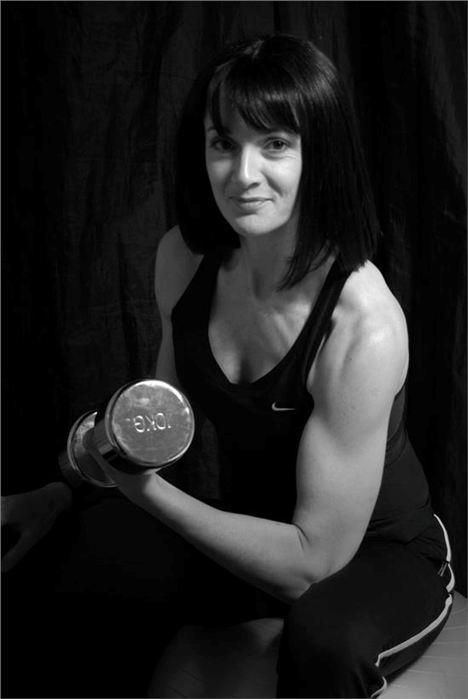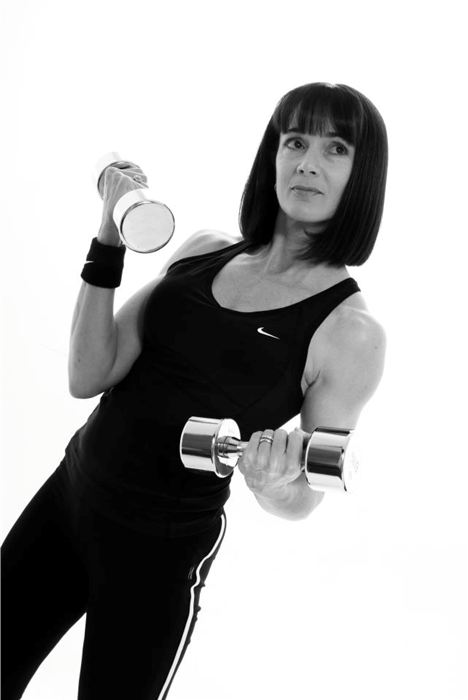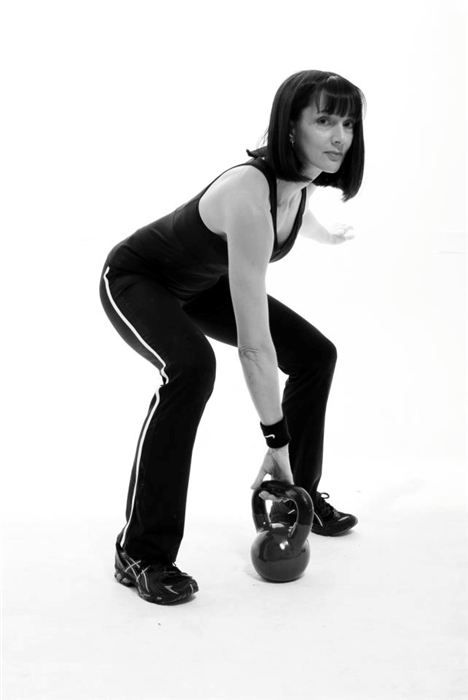KEEPING healthy and active through regular exercise and eating sensibly is important at any age. As we hit our 40s and beyond it becomes vital to our well-being to maintain regular exercise and daily activity. Numerous studies have shown that a combination of a sedentary lifestyle and poor nutrition increases the risk of premature ageing, illness and disease; ultimately shortening life expectancy.
A recent survey showed the average woman has been on 61 diets by the age of 45. Diets wreck your metabolism and results in yo-yo weight gain and loss.
There are numerous physiological changes associated with ageing. These include decreases in cardiac output (the efficiency of the heart), maximal oxygen uptake (the body’s ability to utilise oxygen) and bone density. Muscle mass typically starts to reduce in those over 40 and blood pressure may start to increase.
The good news is that whilst you can’t stop the ageing process you can slow down, halt and even improve some of these physiological changes through regular exercise. So now we know why exercise is beneficial as we age here are my top tips...
Set yourself a goal
Having a vague notion of wanting to stay fit is unlikely to be enough to keep you focused. Setting a specific goal can be great for motivation and gives a purpose to each training session. It can be as simple as improving your distance over a given time on an exercise bike, rowing machine or treadmill in the gym, or taking part in a more ambitious event such as a five or ten kilometre run. There are plenty of fitness charity events to take part in too such as Race for Life, The Moonwalk, and The Three Peaks Challenge. Taking part in a big organised event can offer a huge incentive and the camaraderie and sense of achievement afterwards will do wonders for your social life and self-esteem.
Ditch the diet
A recent survey showed the average woman has been on 61 diets by the age of 45. Diets wreck your metabolism and results in yo-yo weight gain and loss. The key to successful weight management is adopting a healthy eating plan and sticking with it – for life. A well balanced diet includes plenty of fruit and vegetables, healthy fats, proteins, calcium rich foods and water. Try keeping to fresh and unprocessed foods as much as possible as anything that has been processed will contain calorie laden unhealthy ingredients like saturated fats and sugar. There are now some fantastic supplements on the market now when whole foods aren’t accessible. Try USN’s Ultra Lean Diet Whey. This delicious low-GI, low-kJ supplement is high in whey protein, fibre, and other essential nutrients, which combine to ensure long-lasting satiety and minimise the likelihood of hunger pangs or sudden drops in energy levels.
Train for function
The physiological changes associated with ageing need to be addressed as you approach your 40s, if not before. Maintaining your quality of life in the coming decades may depend on it. So keeping your heart healthy through regular cardiovascular training is critical. Choose an activity you enjoy such as swimming, cycling or running and complete a half hour session two or three times a week minimum. On other days take every opportunity to incorporate exercise into your day such as taking a brisk walk in preference to driving and using the stairs rather than the escalator.
Resistance training, working out with weights, is also vital to avoid age related muscle loss. Resistance training and weight bearing cardiovascular activities are both important in maintaining and increasing bone strength; which is of particular concern for post-menopausal women who have an increased risk of developing osteoporosis. Incorporate whole body exercises which replicate movements needed for everyday life. A squat is a perfect example of this as it keeps the legs and core strong; if you want to be able to use the bathroom independently when you’re older then keep squatting. Another two issues affecting function as we age are flexibility and balance, so stretching every day or yoga can be an excellent way to promote these.
Listen to your body
Whilst accepting that exercise is good for you it’s also essential you listen to your body and don’t overdo things. The body’s ability to heal and recover can take longer as we age and over enthusiastic training combined with stress, and lack of sleep can tip you over into injury. This doesn’t mean you need to halt exercise with every little niggle and twinge but don’t ignore a pain or problem that persists beyond a few days. If in doubt seek medical advice which may prevent a short term interruption in training becoming a longer term lay-off.
Surround yourself with like-minded people
There may be times when you lack motivation or focus. Finding friends who enjoy the same activities as you can keep you on track; try joining a class, bootcamp, running club or team. Exercising with other people can be fun and encourages a little healthy competition as well as being a great source of friendship and support. If you pair up with a gym buddy for your training sessions you’ll also be less likely to skip it if you feel you’re letting someone else down.
Make time for exercise
‘Those who think they have not time for bodily exercise will sooner or later have to find time for illness’ Edward Stanley.
By the time you reach your forties you may have many demands on your time with work, family and perhaps elderly dependents. Is it any wonder some people feel they don’t have time to exercise? The important thing to remember is that if you are not fit and healthy it will affect everything else in your life and those who depend on you. Banish the guilt about taking time for yourself to exercise and plan it into your busy week like any other appointment. Exercise can also be broken down into smaller achievable chunks, such as a 20 minute brisk walk to work or a ten minute focused ab session whilst you watch your favourite soap.
Un-plug, disconnect, switch off
In this modern age of communication some of us never really ‘switch off’. The ability to check social networks, emails, messages and calls anytime anywhere means many of us never get a break from technology. This over-stimulation can play havoc with our family life, free time and sleep.
Numerous recent studies have shown most of us are getting less sleep than our parents and grandparents did. Poor sleep and lack of sleep can also affect weight management as well as increasing levels of stress, lowering our immune system as well as making us feel tired and irritable. Combat this by following a night time ritual that relaxes you.
Take a break from the computer, mobile and TV and take some light exercise, followed by a warm shower or bath and end your evening with a good book for a restful and replenishing night’s sleep.
Step out of your comfort zone
Don’t be afraid to try something new. Mental stimulation and exercise play an important role in improving brain function and may protect against cognitive decline. Taking on a new challenge, hobby or sport will help keep you energized and motivated. The times we remember are not the days we sat watching something on the TV or followed the same familiar routine. The days that stand out are those when we stepped out of our comfort zone and when we tried something different however scary it seemed at first.
Follow these tips for staying fit and fabulous through your forties, fifties and beyond so you can look forward to a healthy, happy and active retirement.













